How it all started
The movement was born in the spring of 2022, when Tiyna Korotayeva, together with several other women in Kyiv, began drying vegetables and assembling instant meals on their own.
“That’s how we started – because we had to do something,” says Anna, one of the volunteers who helped launch the initiative.
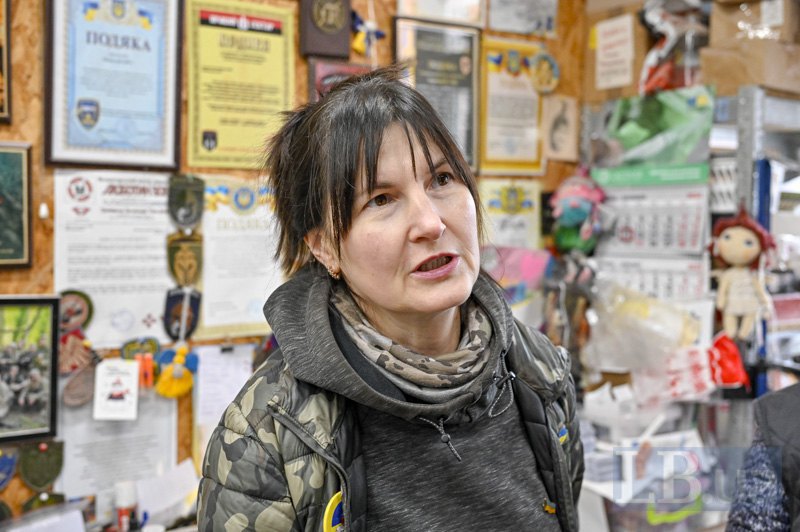
At first, they purchased the ingredients themselves, despite food shortages in Kyiv at the time. They dried whatever they could find.
“At the beginning of the war, Tina reached out to residents of Kolomyia who had long been making this type of borscht. They kindly shared their recipe, which we then improved and adapted. That’s how we later developed other soups using the same principle,” explains Anna.
The team celebrated when they packed their first 500 portions of instant meals – it was a significant milestone.
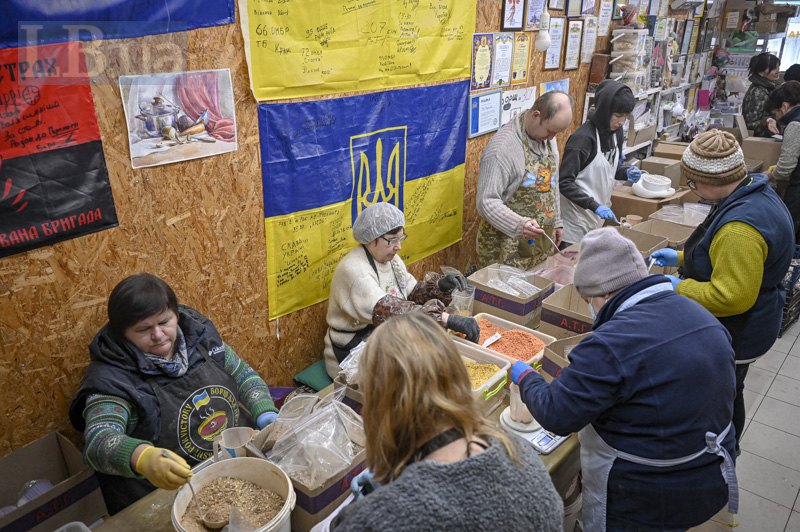
Oleksandr, another volunteer, learned about the initiative from a friend. Since he had a food dehydrator at home, he decided to join and began drying vegetables himself. Whenever possible, he also helped unload supplies at the warehouse, where extra hands were always needed.
“While I’m not in the army, I have to contribute somehow. Donating to friends who serve is one thing, but actively participating in volunteering is another. Plus, I already had experience drying food for hiking trips, so I understood what ready-to-eat vegetables should be like and how convenient this type of fast food is. I even got my mother involved – she dried vegetables, picked apples, and gathered nuts,” says Oleksandr.
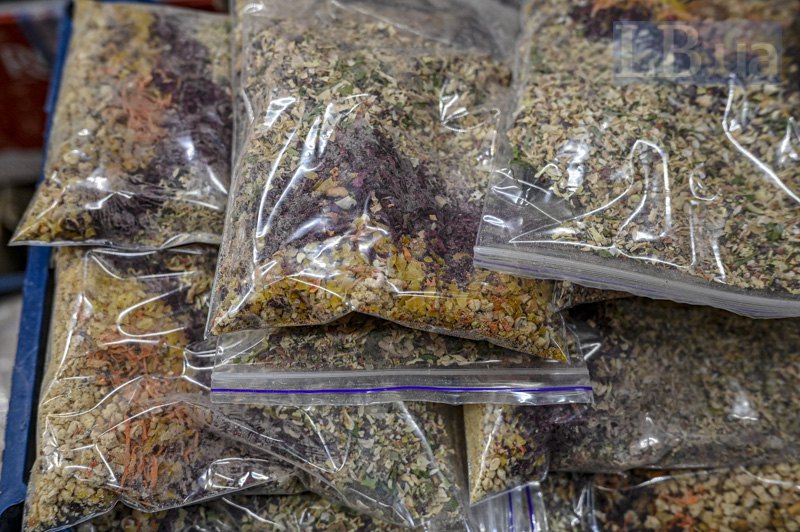
The geography of the movement
The volunteer initiative now has hundreds of active participants across Ukraine. In the capital, for instance, volunteers have organised themselves by district, working within their local communities. In online groups, they discuss the specifics of food preparation – how best to dry ingredients, the ideal drying temperatures, which supplies are running low, and what needs to be processed first.
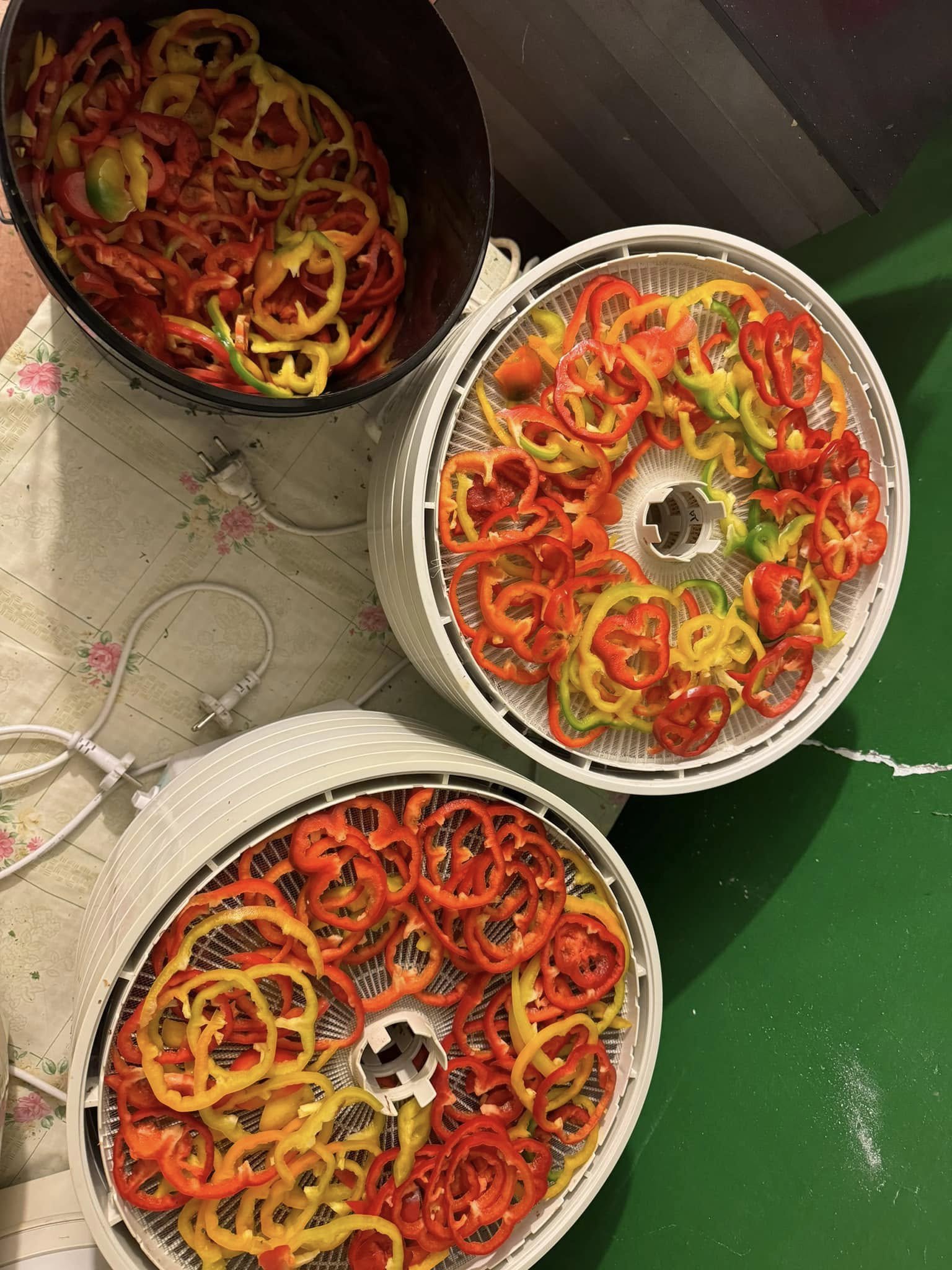
“Once, we had over a hundred bags of carrots and beetroot in the warehouse. They started to wither, so for a couple of weeks, we dried only those vegetables. Our hands were orange and red. The dryer ran 20 hours a day,” recalls volunteer Oleksandr.
There are also local hubs in the regions, where people have their own gardens and access to more affordable produce. This allows for larger quantities of food to be processed efficiently.
Where the food comes from
The food used for drying is donated by farmers and entrepreneurs from across the country.
For example, a vehicle travelling from Sumy Region to Kyiv might bring one and a half tonnes of vegetables along the way. Farmers who hear about the need sometimes donate several tonnes of carrots, cabbage, and beetroot from their warehouses.
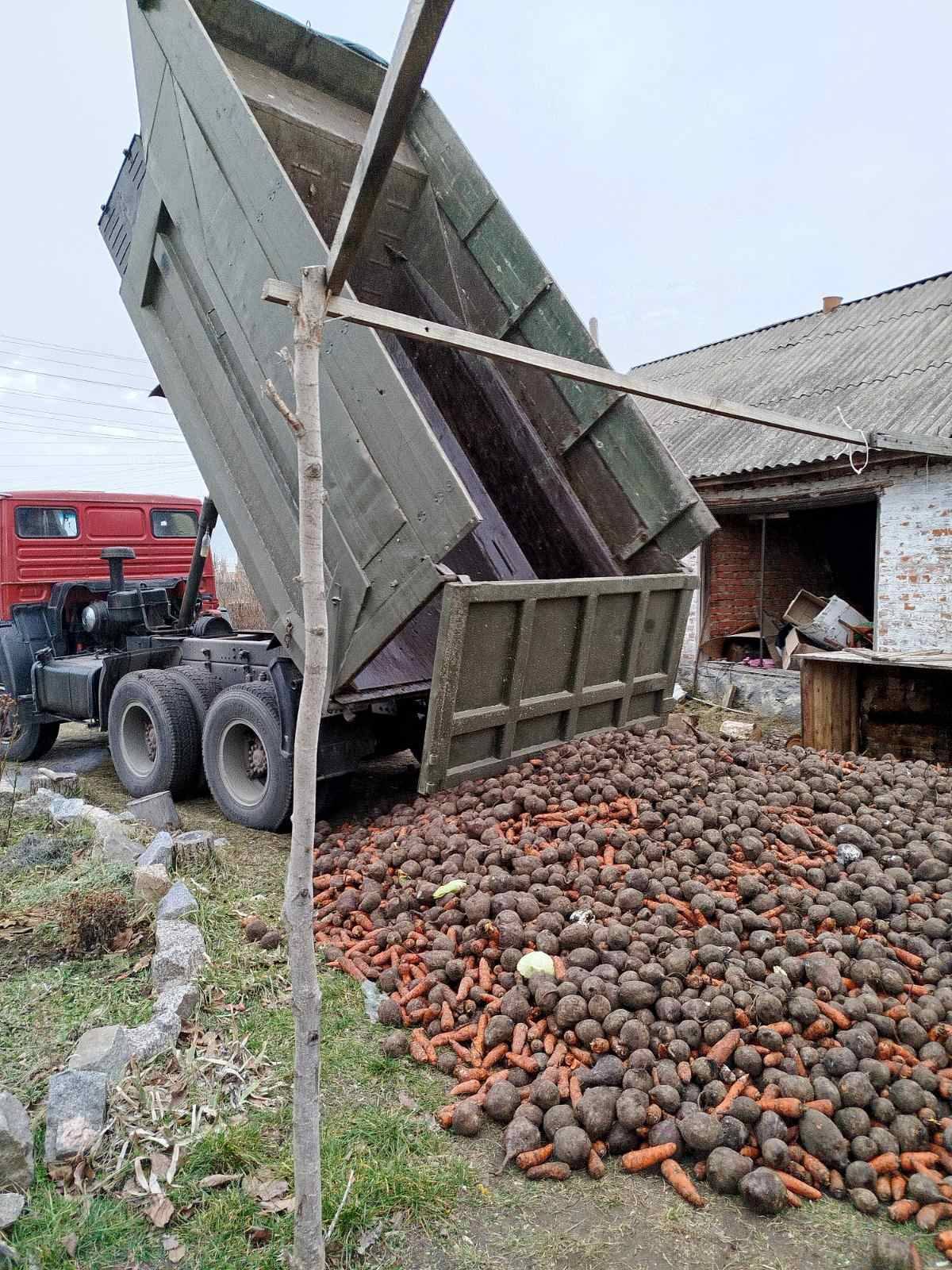
The movement’s unit in the village of Olshanytsya, Kyiv Region, delivers produce in full vehicles – even minibuses – already dried to save space. Local farmers and residents of surrounding villages support their efforts. The Olshanytsya unit alone processes up to two tonnes of raw produce per week. Meanwhile, Serhiy Klevo from the village of Barakhty, Kyiv Region, regularly delivers both fresh and dried produce, often hauling full car trailers.
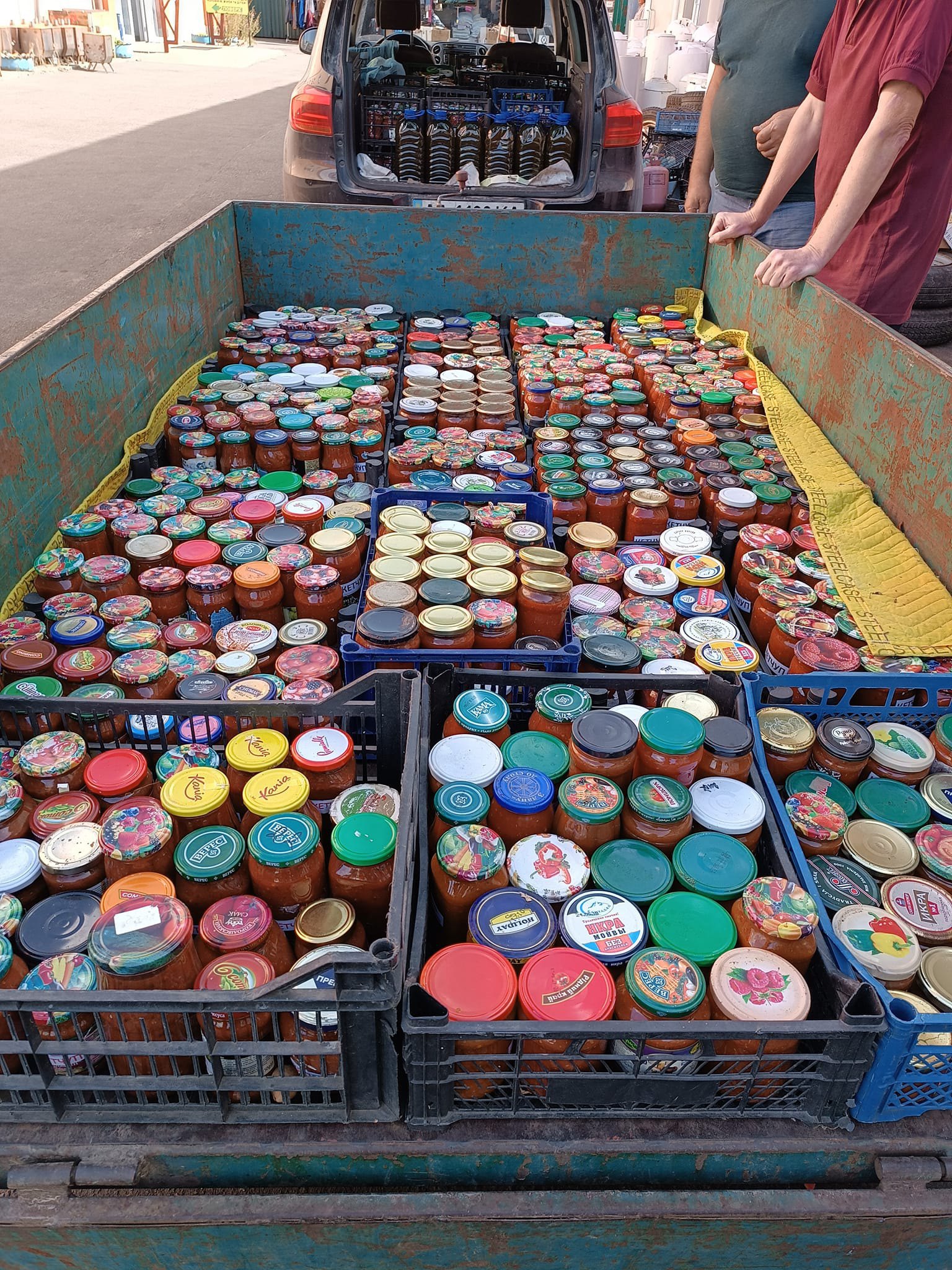
“I remember when a truck carrying four or five tonnes of vegetables arrived. Men, women, and even children helped unload it. Within an hour, everything was stored in the basement. Some of the vegetables were immediately taken by volunteers for drying,” Oleksandr recalls.
Meat is in constant demand. It is a key ingredient in most dishes but is also expensive. To secure enough chicken, pork, and beef, the group collects donations and buys 50–100 kilograms at a time. Volunteers then sort, cook, mince, and dry it. Even the broth is put to good use – it is donated to volunteers who care for animals.
“The hardest part of drying meat is keeping it safe from pets. They sit near the meat grinder and dryer, making it very clear that they expect a share. That’s why we have to shut the kitchen door at night – the smell of meat is simply too tempting for both cats and dogs,” laughs volunteer Lyudmyla.
Other essential ingredients, such as pea and oat flakes, dried paprika, and spices, are bought in bulk. Meanwhile, mushrooms and herbs – including parsley, celery, dill, and green onions – are sometimes donated by the entrepreneurs who grow them. The same goes for honey, which beekeepers contribute in large three-litre jars or buckets rather than the usual one-litre containers.
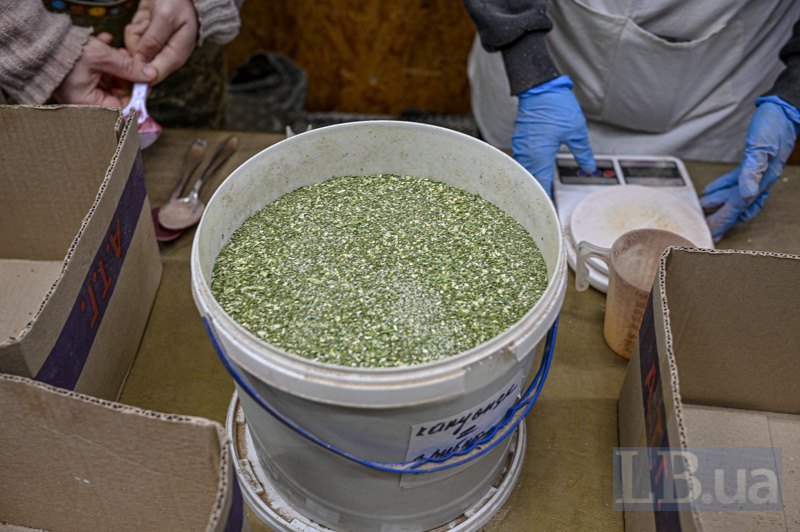
How the headquarters operates
Every Monday, the movement’s headquarters in Kyiv collects dried produce brought in from branches across the city and beyond. The dried products are received and sorted into large plastic boxes – each holding 20 litres or more – before being packaged.
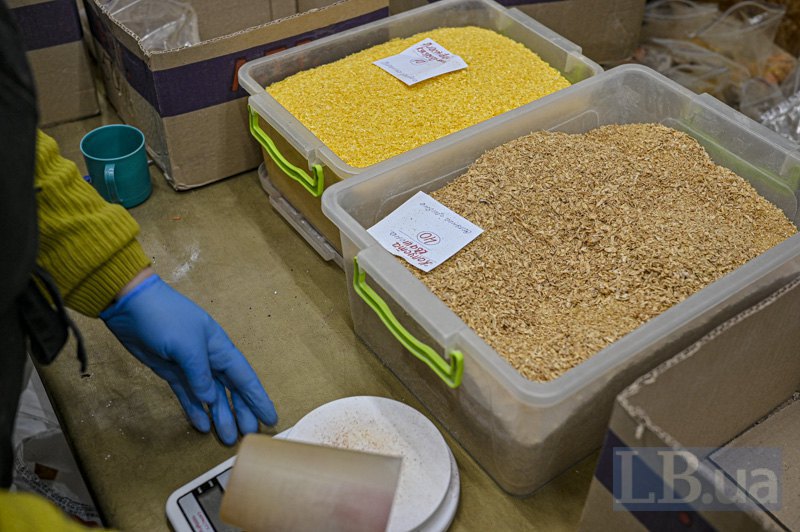
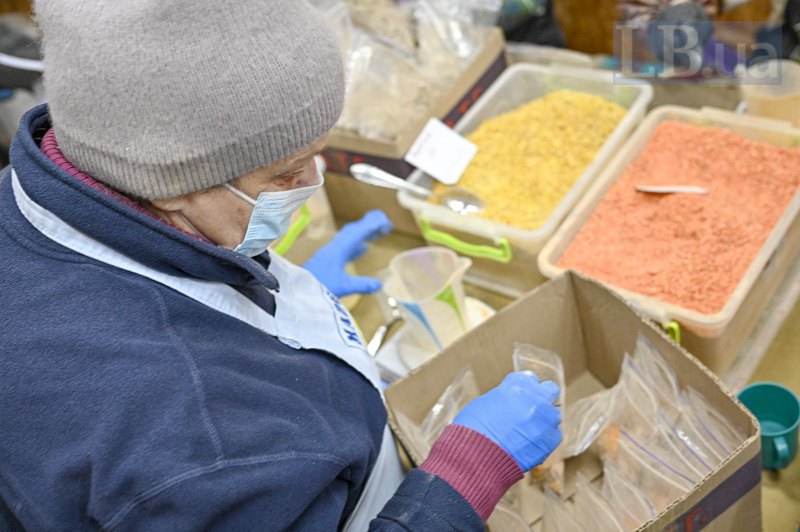
On Tuesdays and Wednesdays, volunteers pack borsch and soups. Orders are placed on Thursdays, and shipments are sent out on Fridays, primarily via Nova Poshta. Occasionally, some volunteers personally collect and deliver food. There is no rest on Saturdays either, as volunteers focus on packing porridge.
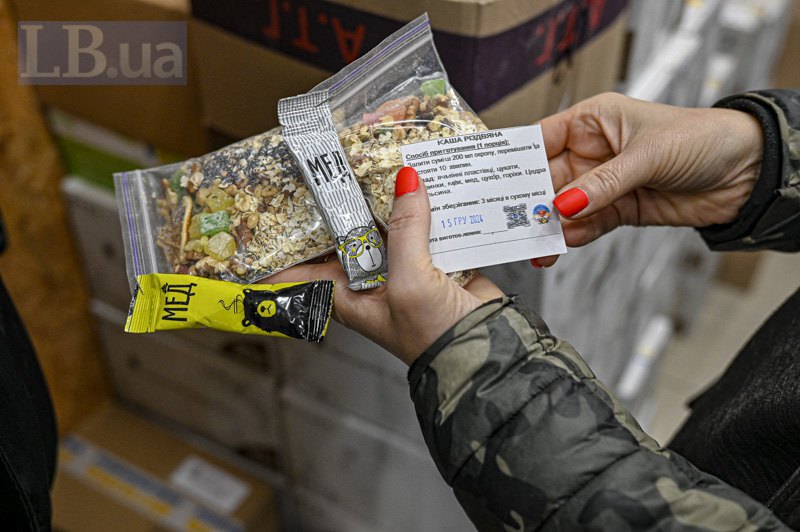
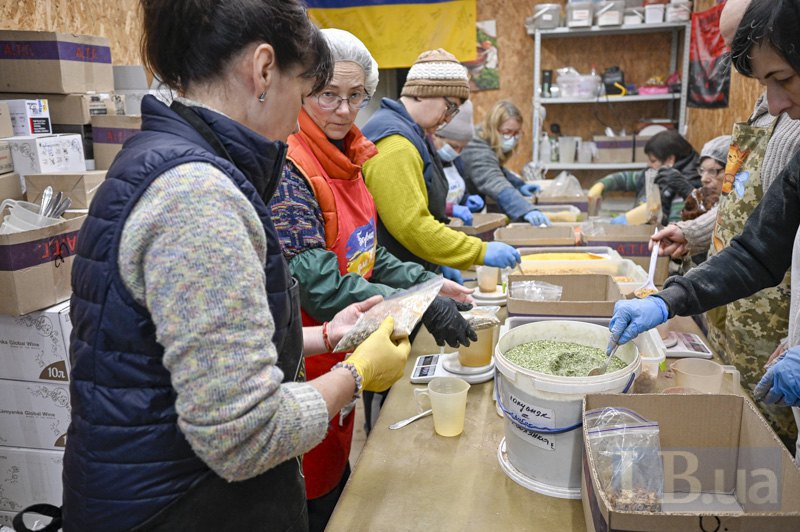
Anna notes that sometimes soldiers cannot pick up their orders immediately because no one is available to collect them from the post office. But when they finally do, it is a huge relief – it means the recipient is alive.
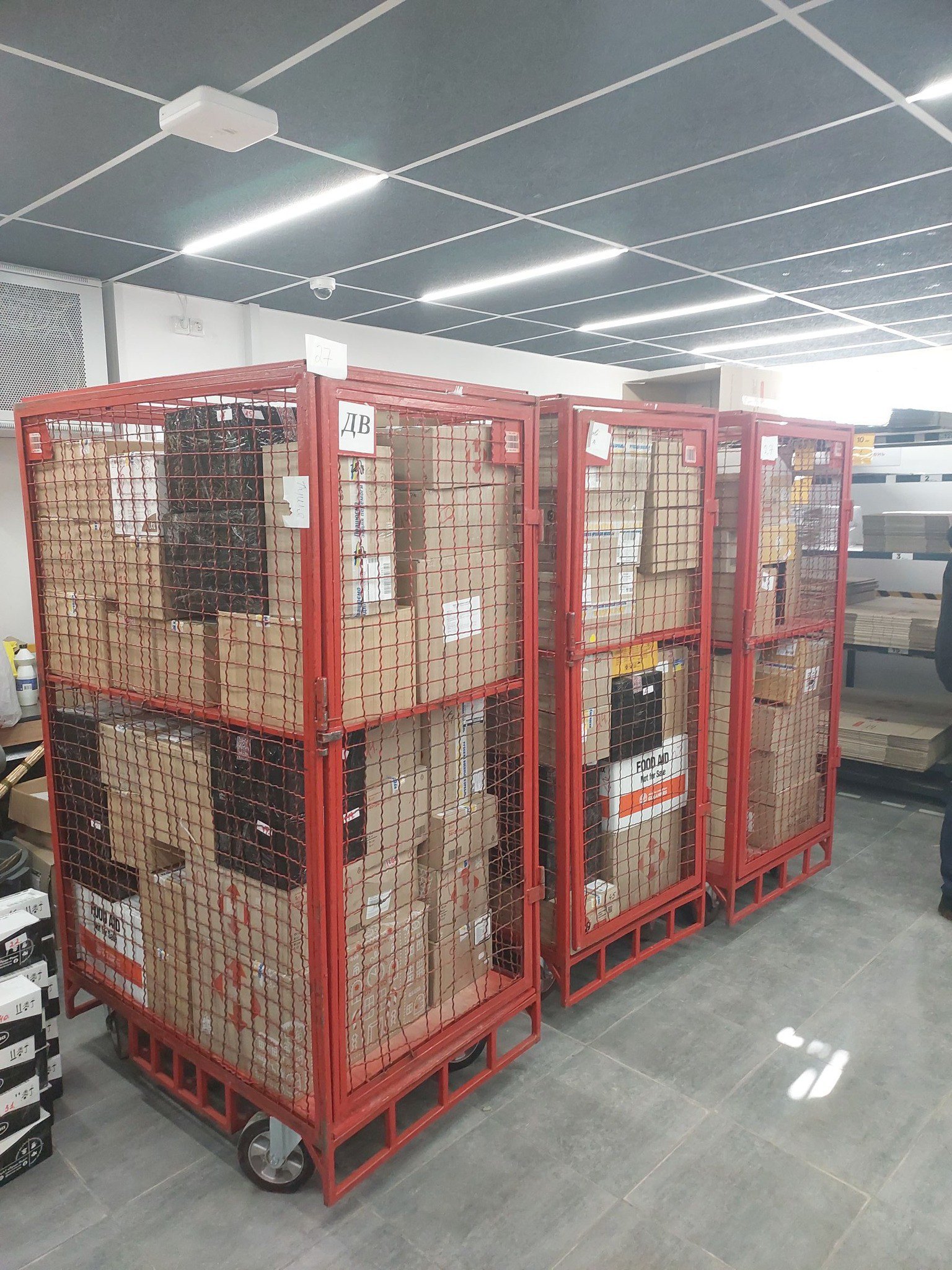
Volunteers also prepare energy bars, nut and fruit mixtures, and pastille at home before sending them to the headquarters. The pastille is made using apples as a base, with added frozen berries, fruits, or jam.
The movement produces a wide range of food, including:
- Soups and borsch: dry borsch, mushroom soup, pickle, lentil soup, chicken and noodle soup, pea soup with smoked meat, kharcho, rice soup with meat and vegetables, bean soup, buckwheat soup, and green soup.
- Porridges: Cossack, Otaman, Hetman, and raisin varieties.
- Snacks: energy bars and nut and fruit mixtures.
A standard package of first-course meals is designed for six servings and requires up to two litres of boiling water. However, some soldiers prefer smaller portions, so special orders for three-serving packs are also available.
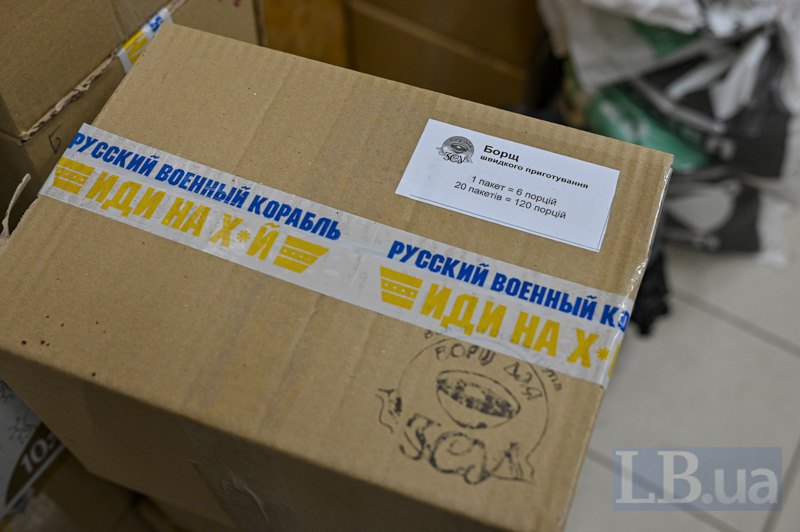
In 2024 alone, Borsch for the Armed Forces prepared more than 1.2 million servings of its signature borsch and soups. Additionally, volunteers produced over 150,000 servings of porridge, nearly 40,000 servings of vitamin dried fruit teas, and more than 330,000 energy bars.
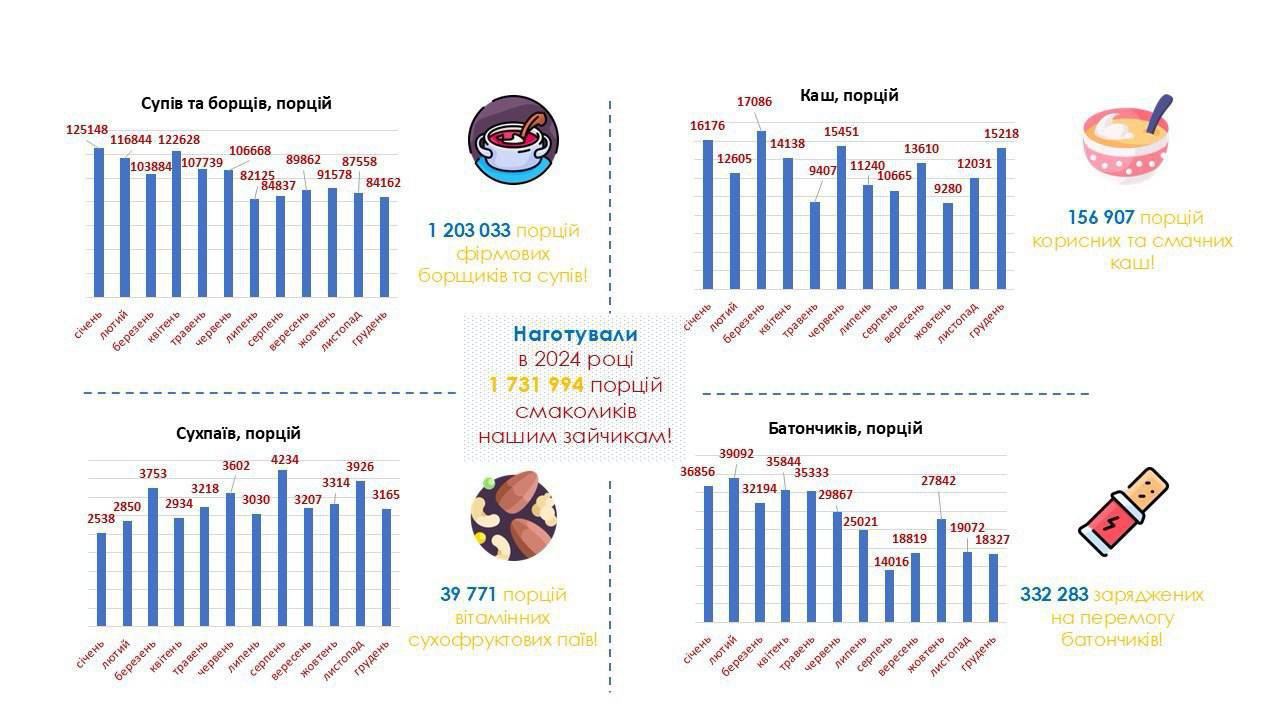
Beyond food, homemade sauces – such as tomato, plum, and cherry plum – are sent to the front lines. In winter, there is also a high demand for ginger-honey-lemon mixes and various herbal teas.
A hub for volunteer support
Borsch for the Armed Forces has grown into a broader volunteer hub. Members collect tins, paraffin, and wax to be passed on to those making trench candles. They also send medicines, camouflage nets, woollen socks, as well as letters and drawings from schoolchildren to the frontline.
Another key area of activity is supporting hospitals, where volunteers send hundreds of cans of preserved food from all over Ukraine.
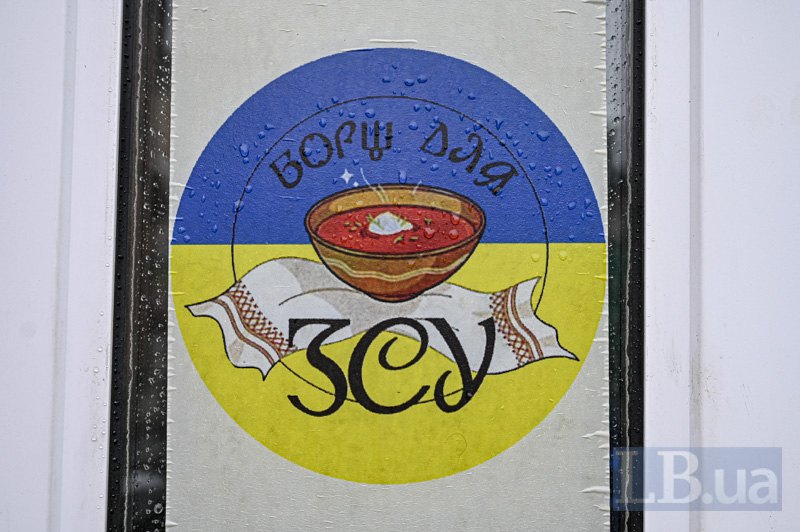
Why are these products needed on the frontline?
The military and their families regularly flood Borsch for the Armed Forces with requests. Each week, applications arrive for hundreds or even thousands of people. Some orders are for small groups of five to six soldiers, while others come from entire platoons.
Orders are accepted weekly from Monday to Wednesday, and sometimes on Thursday.
“There is always demand for our products. We have a lot of customers who rely on us all the time,” says Anna, showing dozens of letters of thanks from various brigades and units – including the Defence Intelligence of Ukraine.
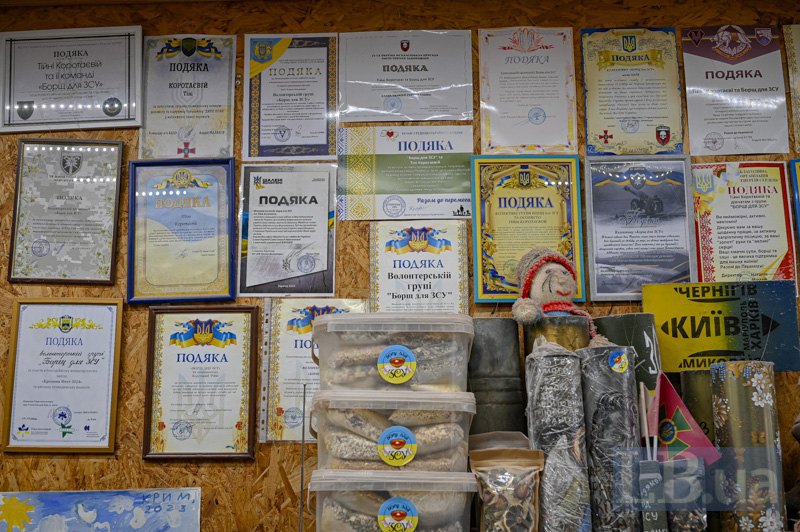
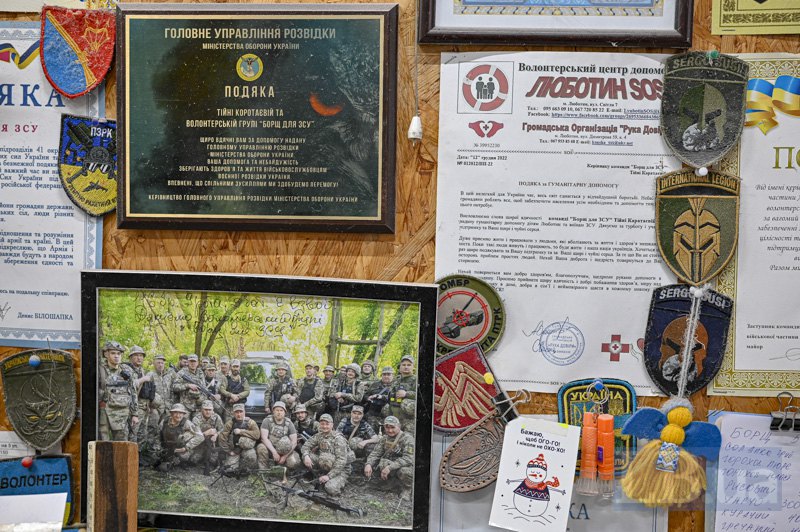
“I’m sick of stew – both the taste and the consequences for my stomach. But these soups and the meat in them save the day, especially when you can’t cook anything yourself because you’re so close to the line of fire,” says Andriy, a soldier in the Armed Forces.
Both on the group’s social media page and in private messages, soldiers from the Defence Forces express their gratitude for the support, highlighting the meals’ taste, convenience, and nutritional value.
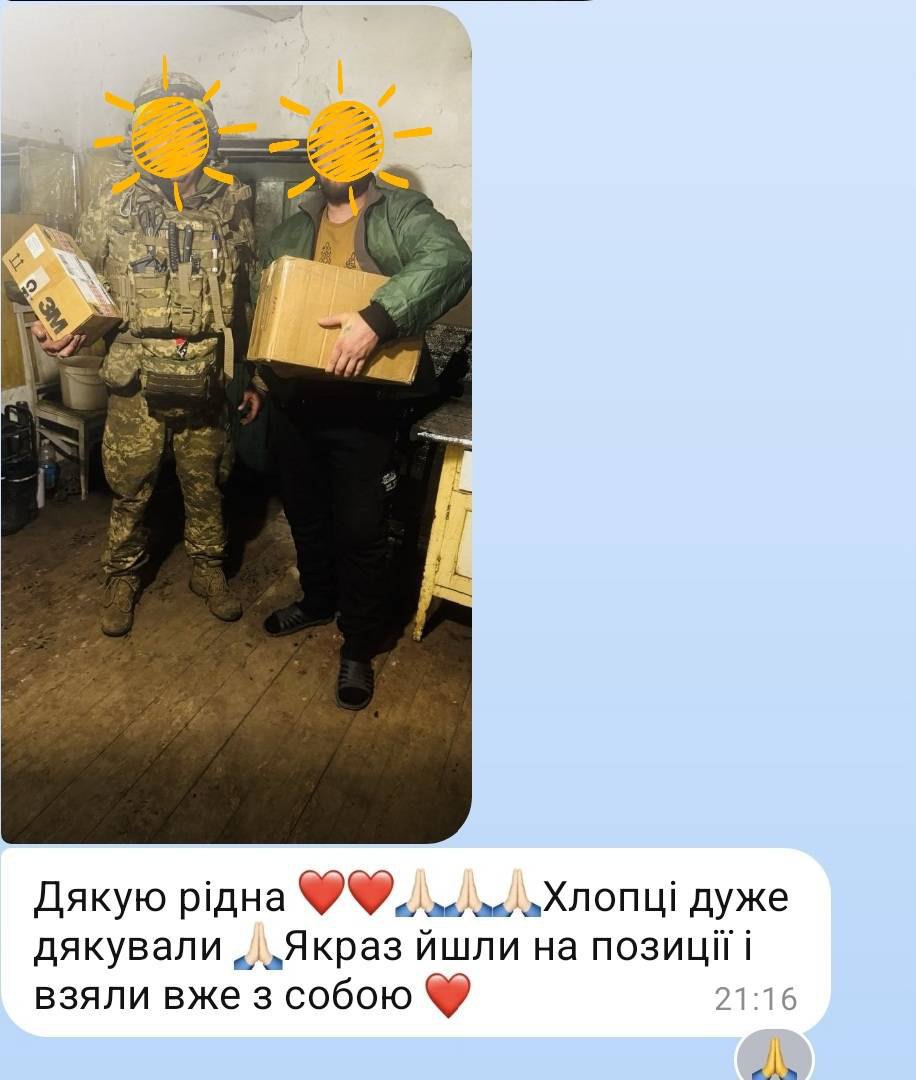
“I usually don’t have time to cook anything. And hot food helps a lot – even mentally. It’s like a greeting from home. With all due respect to the food provided by the state, these soups and porridges are much tastier and healthier. We are very grateful to the volunteers who invest hours of their time so that we can have a good meal,” says National Guard soldier Serhiy.
What challenges do the movement’s members face?
The main problem, as with all volunteer initiatives, is money. Funds are needed not only for food but also to pay for the rent of the premises where meals are packaged and stored. Electricity and other expenses amount to thousands of hryvnyas per month. There is also a constant shortage of cardboard boxes and ziplock bags for packaging.
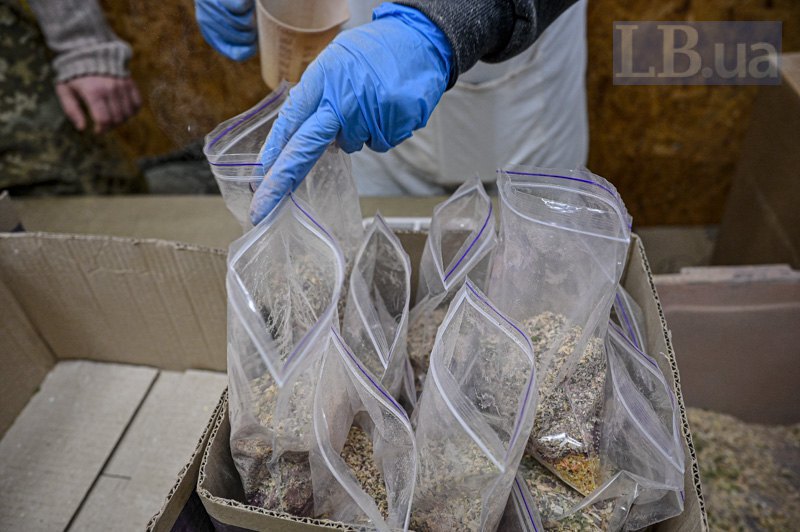
“We mostly help ourselves. Although sometimes things ‘work out’ with occasional donations from friends,” says Anna.
There is always a need for labour. Products must be packed at the warehouse, dried goods delivered, and fresh produce distributed to volunteers for drying.
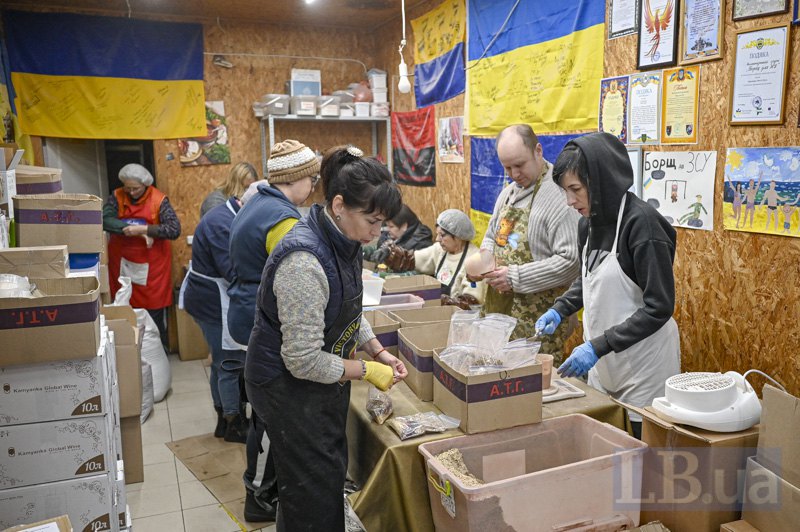
Currently, the amount of dried food arriving at headquarters has decreased. Previously, there were stockpiles, but now packaging is done “off the wheels” as supplies come in.
The movement’s volunteers divide tasks: those without dryers can wash and grate food for drying, while others peel nuts used in energy bars and fruit-and-nut mixtures.
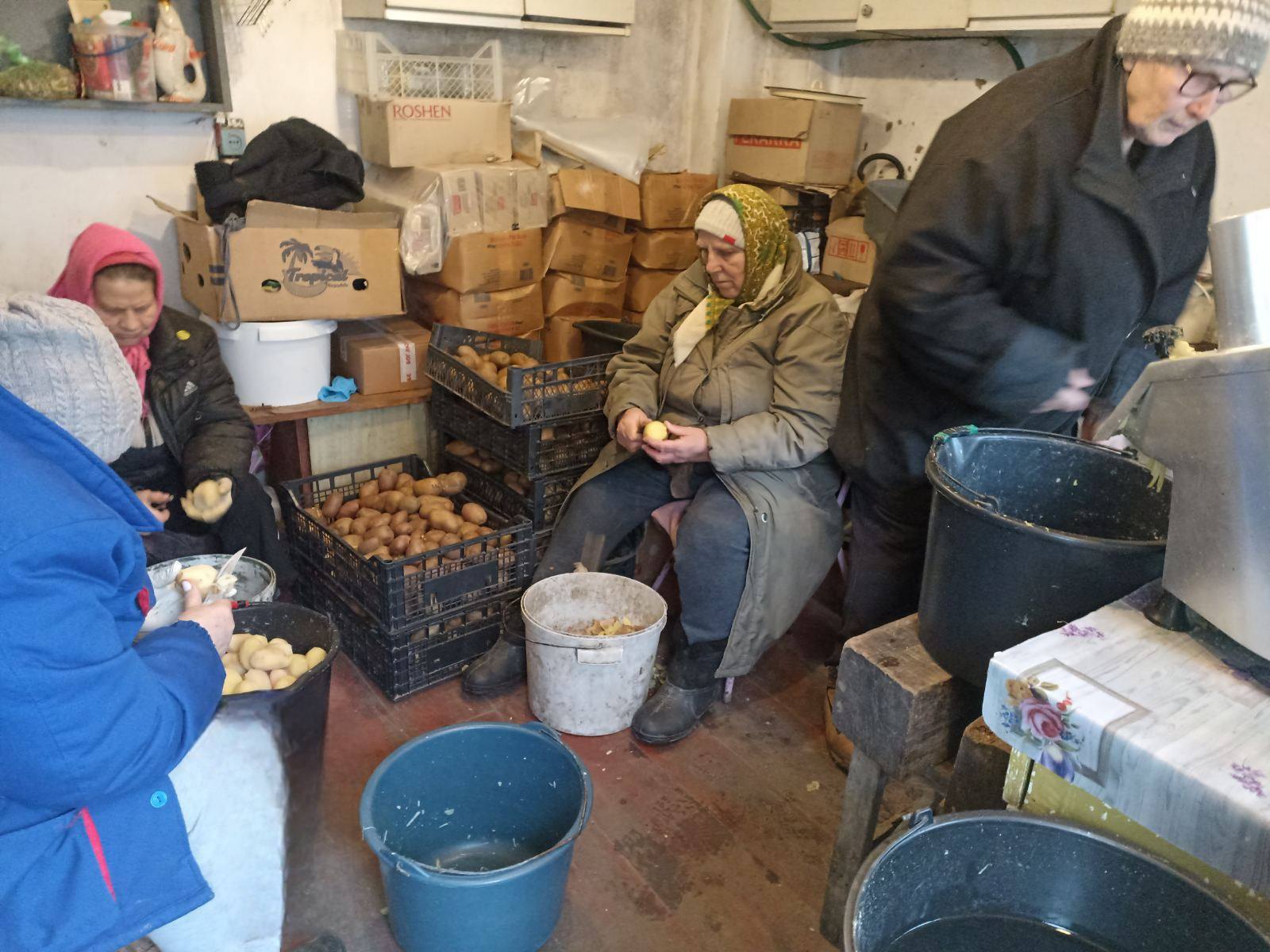
Power outages created significant challenges. The demand for dried food remained high, so volunteers set alarms to turn on the dryers whenever electricity was available. At times, prolonged outages led to food spoilage, though this was rare.
“When the power was cut, the ‘uninterruptible power supply’ would start beeping. I’d get up and carry the dryer to the balcony, out into the cold, so the potatoes or carrots wouldn’t spoil. When the electricity came back, the bedroom chandelier would turn on, waking me up to bring the dryer back to the kitchen,” recalls volunteer Lyudmyla.
Unfortunately, neither the Kyiv city authorities nor district officials provide any assistance to the movement, even in finding premises. Financial support is entirely out of the question.
The Borsch for the Armed Forces movement currently operates from several small spaces in one of Kyiv’s markets. Initially, these premises were provided free of charge – at the start of the full-scale Russian invasion, many people left Kyiv, and business activity nearly halted. Later, as the situation stabilised, the landlord set the rent for one space at UAH 13,000. While this amount may not seem overwhelming, it still requires additional fundraising.
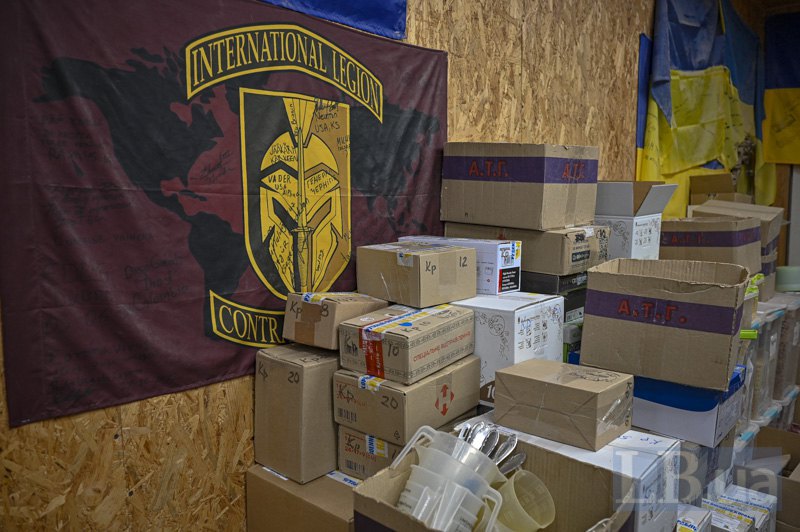
From time to time, Borsch for the Armed Forces participates in public events, where they raise funds for food purchases and spread awareness of their work, inviting new volunteers to join.
Money is also raised at concerts, including those at Docker Pub. For example, in September, they managed to collect about UAH 120,000. However, in December, attendance was lower, and fewer items were available for auction, so the amount raised dropped to UAH 58,000.
In the summer of 2023, blogger Mykhaylo Sheitelman highlighted Borsch for the Armed Forces and offered his support. This significantly helped the volunteers, enabling them to purchase several tonnes of instant cereals, fried dried onions, meat, spices, raisins, as well as drying equipment and food processors.
You can support the Borsch for the Armed Forces movement by donating using the details listed here.
You can also send food directly to the volunteers. To do so, contact the movement’s coordinators via Facebook.







